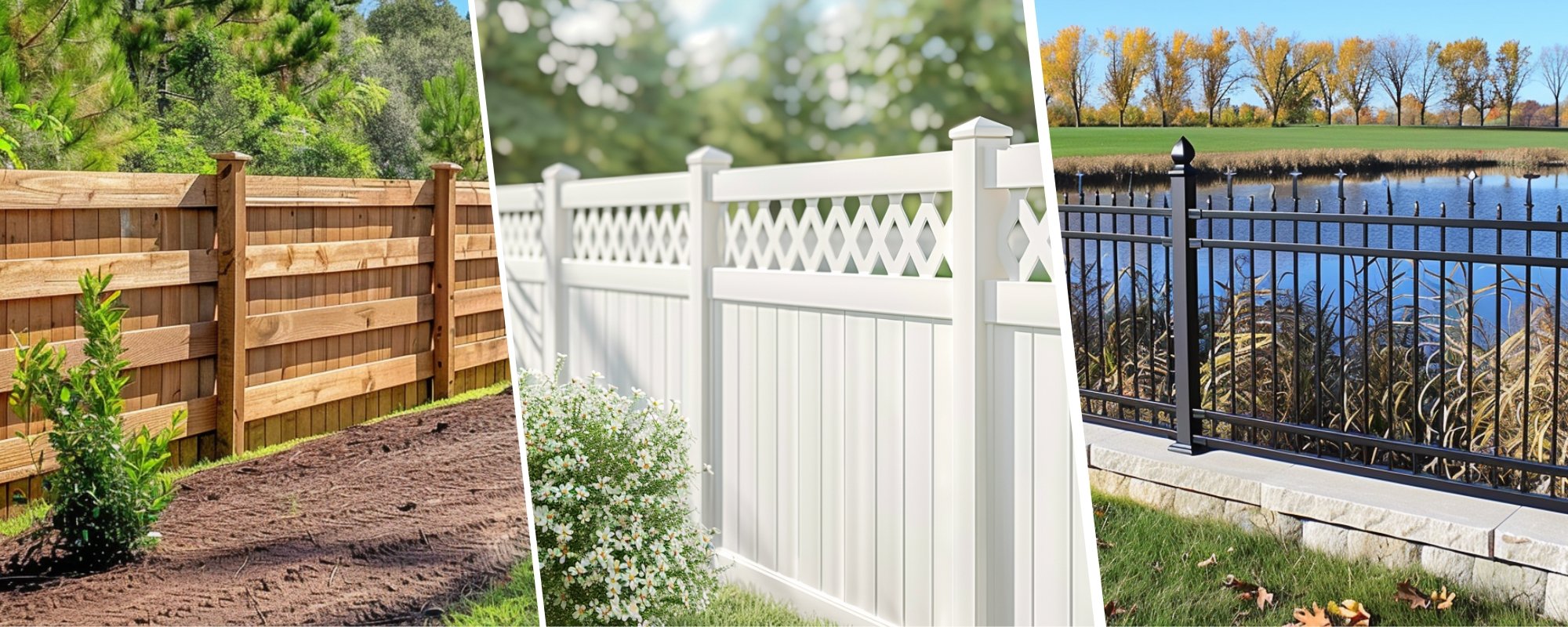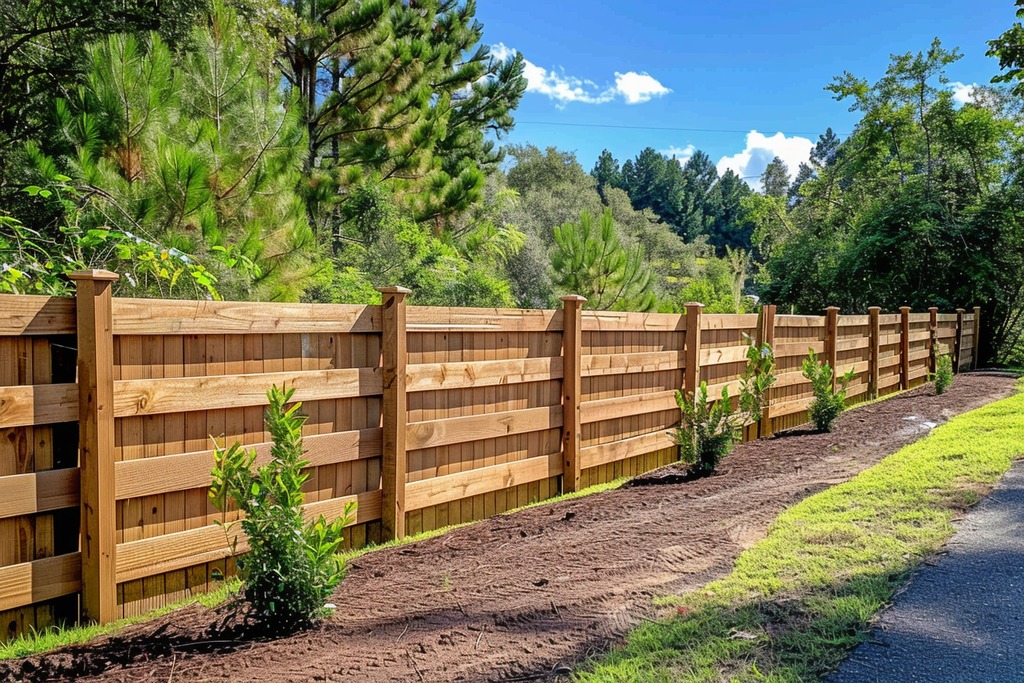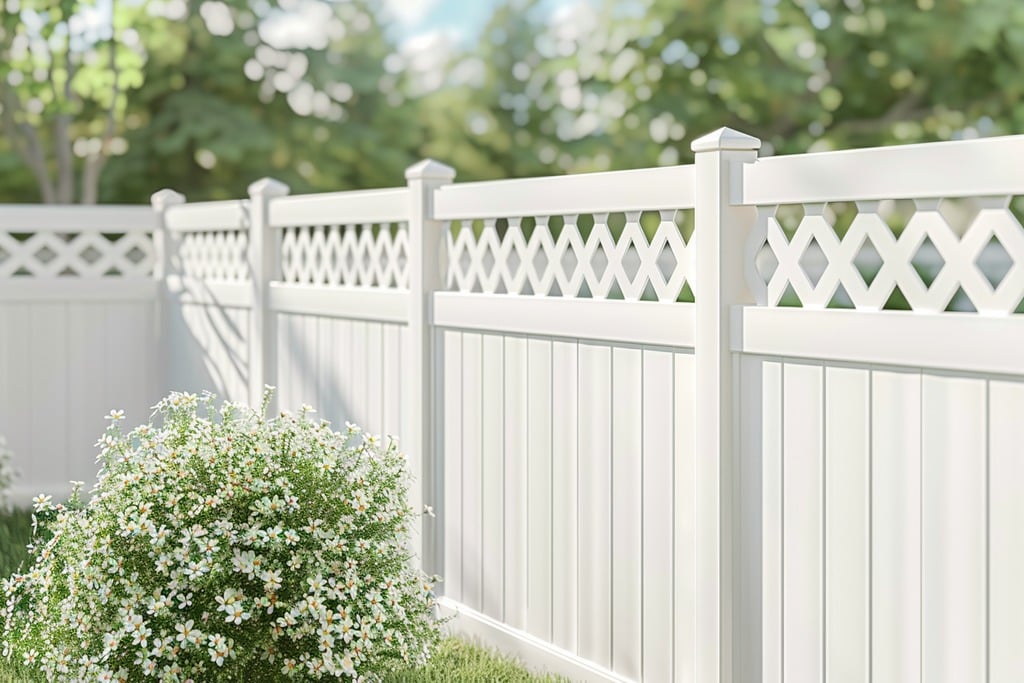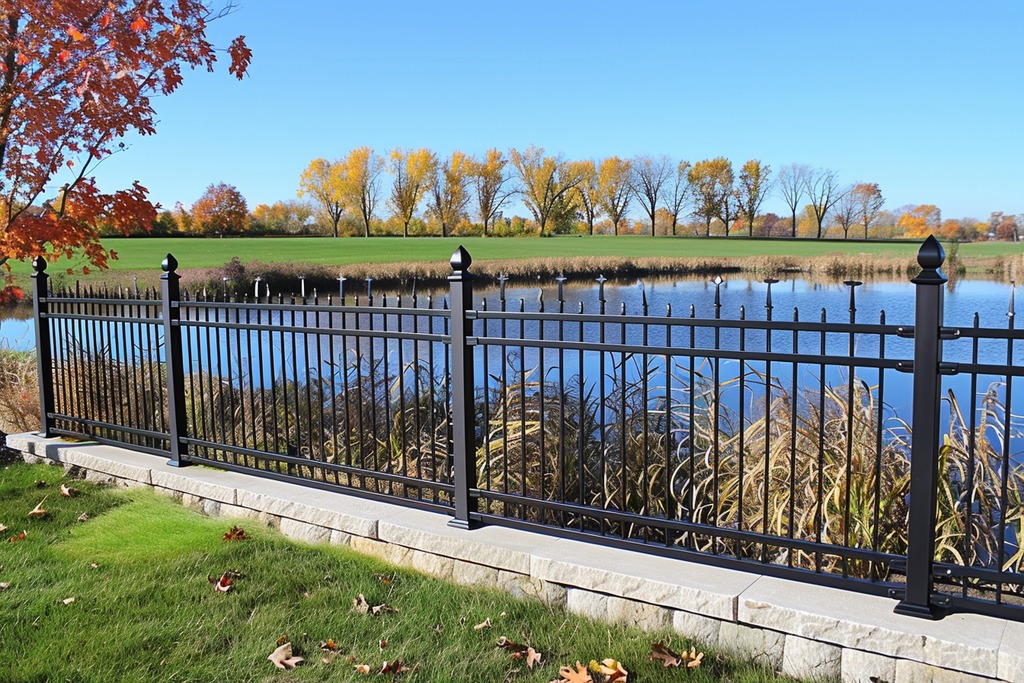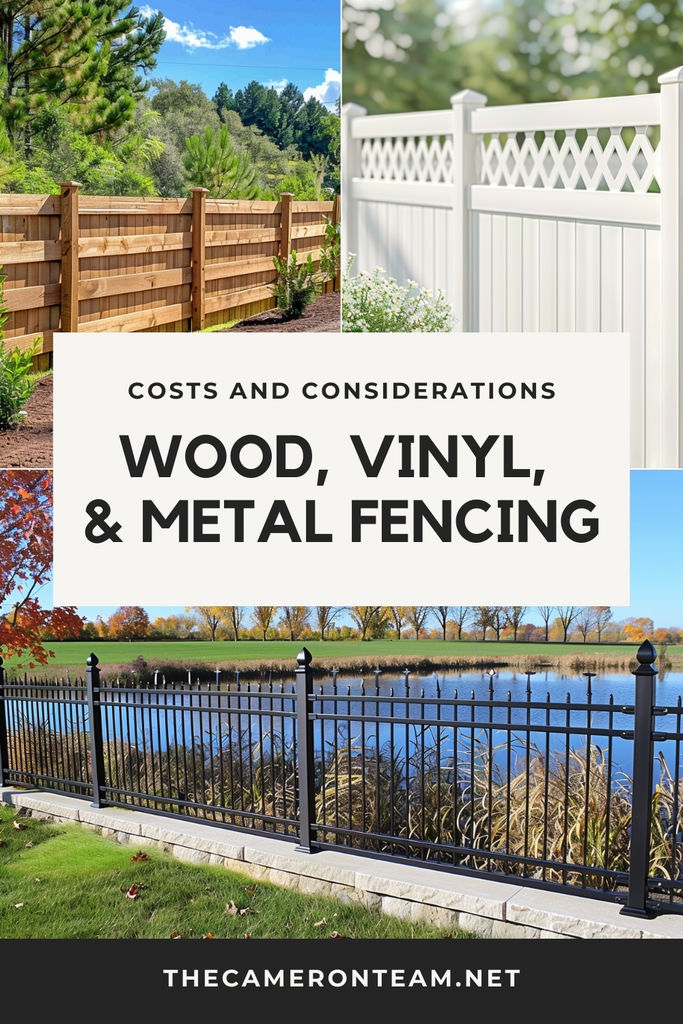When it comes to selecting the perfect fence for your home in Southeastern North Carolina, there are several options: wood, vinyl, and metal. Each type brings its own set of advantages and challenges, as well as varying cost implications. This blog post aims to delve into these aspects, helping homeowners make informed decisions based on their specific needs and the regional considerations of Southeastern North Carolina.
We’ll explore the durability, maintenance, aesthetic appeal, and cost of wood, vinyl, and metal fencing. We’ll also provide current pricing trends in Southeastern North Carolina to give you a clear picture of what you might expect to spend. Whether you’re looking for privacy, security, or simply a decorative boundary, understanding these factors will guide your choice.
Wood Fencing: A Classic Choice
Pros:
- Aesthetic Appeal: Wood fencing offers a warm, traditional aesthetic that many homeowners adore. It’s easily customizable through a variety of stains and paints, allowing it to fit seamlessly with different landscapes and architectural styles. Whether you’re aiming for a rustic, cottage-style look or something more polished and modern, wood can be tailored to meet your vision.
- Natural Material: Wood is favored for its natural, organic quality, making it a perfect choice for eco-conscious homeowners. When sourced responsibly, it’s a renewable resource and completely biodegradable, offering an environmentally friendly fencing option.
- Cost-Effective: Generally, more affordable than other fencing materials, wood is a great option for those on a budget. The cost can vary depending on the type of wood and the intricacy of the fence design, but it remains one of the most accessible materials in terms of price.
Cons:
- Maintenance: Wood fencing requires a significant amount of upkeep to maintain its appearance and longevity. Regular tasks such as staining or painting, along with repairs from damage caused by moisture, insects, or weather, are necessary to prevent decay and ensure the fence remains sturdy and attractive.
- Durability: Although beautiful, wood is less durable over time compared to materials like vinyl or metal. It is susceptible to rot, warping, and insect damage, which can compromise the fence’s structure and aesthetic appeal if not properly maintained.
Average Cost in Southeastern North Carolina:
The installation cost for wood fencing typically ranges from $15 to $30 per linear foot. This price can fluctuate based on the type of wood chosen and the complexity of the fence design, making it important for homeowners to consider both upfront costs and long-term maintenance expenses when selecting wood as their fencing material.
Vinyl Fencing: Low Maintenance and Modern
Pros:
- Low Maintenance: Vinyl fencing is a standout for homeowners looking for durability without the hassle of frequent upkeep. Unlike wood, vinyl doesn’t require painting, staining, or sealing, and it cleans up easily with just soap and water. This makes it an ideal choice for those who prefer a “set it and forget it” approach to exterior home maintenance.
- Durability: Vinyl is highly resistant to the elements, including rain, wind, heat, and pests, ensuring it remains in good condition for years without fading, cracking, or peeling. Its resilience makes it particularly suitable for the humid and storm-prone climate of Southeastern North Carolina.
- Variety of Styles: Available in a plethora of designs and colors, vinyl fencing can be designed to mimic the aesthetic of traditional wood fences or offer a completely unique and modern appearance. This versatility allows it to suit a wide range of personal styles and home exteriors.
Cons:
- Higher Initial Cost: Although it saves money and effort in maintenance, the initial investment for vinyl fencing is higher compared to traditional wood. This can be a deterrent for budget-conscious homeowners, though the longevity and low upkeep often justify the upfront cost.
- Environmental Impact: As a plastic product, vinyl is not biodegradable, which raises concerns regarding its environmental footprint. Disposal at the end of its life cycle can also contribute to landfill waste, which might concern eco-conscious homeowners.
Average Cost in Southeastern North Carolina:
Homeowners can expect installation costs for vinyl fencing to range between $20 and $40 per linear foot. These costs encompass both materials and labor, reflecting vinyl’s position as a mid-range fencing option that balances performance with affordability.
Metal Fencing: Strength and Security
Pros:
- Durability and Security: Metal fencing is renowned for its exceptional durability and security. Materials like aluminum and steel are strong, can withstand severe weather conditions, and offer a high level of protection against intruders. This makes metal fences a top choice for those prioritizing long-lasting security and structural integrity in their fencing.
- Aesthetic Flexibility: Metal fences offer a wide range of design options, from sleek, contemporary lines to intricate, ornamental patterns that enhance the property’s curb appeal. This versatility allows homeowners to choose a style that not only provides security but also complements their home’s architecture.
- Minimal Upkeep: Metal fencing is virtually maintenance-free, especially options like aluminum that do not rust. Unlike wood, metal does not require staining, painting, or sealing, which saves time and money over the fence’s lifespan.
Cons:
- Cost: The initial cost of metal fencing, particularly wrought iron, is higher than that of wood or vinyl. This might be a significant consideration for budget-conscious homeowners, although the longevity and minimal maintenance requirements can offset the initial investment over time.
- Less Privacy: Metal fences often offer less privacy compared to the solid panels of wood or vinyl fences. This can be a drawback for those seeking to completely block the view from the outside, although the security aspect is enhanced.
Average Cost in Southeastern North Carolina:
The cost to install metal fencing can range from $35 to $60 per linear foot, depending on the type of metal and the complexity of the design. Homeowners should consider this as an investment in a durable and low-maintenance fencing solution that adds significant security and aesthetic value to their property.
Conclusion
Choosing the right fence for your Southeastern North Carolina home depends on your priorities. If you value aesthetics and natural materials, wood might be your best bet, though it requires regular maintenance. Vinyl offers a middle ground with less upkeep and moderate costs, while metal provides unmatched durability and security, albeit at a higher price point. Each material has its own set of advantages and considerations, particularly when factored with the climate and market conditions of Southeastern North Carolina. By weighing these factors against your personal preferences and budget, you’ll be well-equipped to make a choice that adds value and charm to your property.

